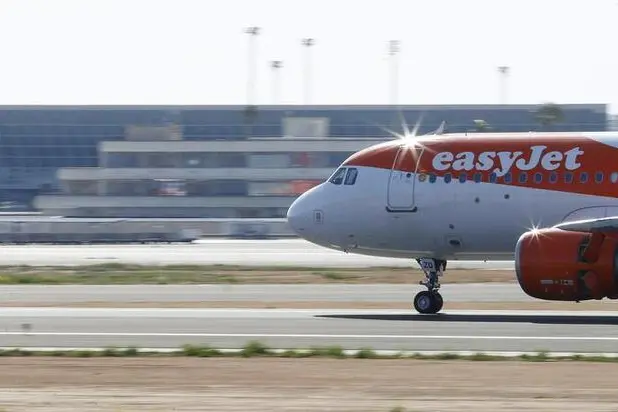PHOTO
British airline easyJet said it was confident travel demand would remain strong this summer, putting it on track for further growth and boosting its shares after it forecast a smaller-than-expected winter loss.
Consumers in Europe are continuing to spend on trips despite rising fares and their incomes being squeezed by higher interest rates, and easyJet chief executive Johan Lundgren said there was "positive momentum" going into the key travel season.
"We move into the summer period with confidence that we can deliver another record summer performance," he told reporters on Thursday.
Shares in easyJet traded up 4% at 0800 GMT, but at 538 pence the stock is a long way off pre-pandemic levels of 1,300 pence, as worries linger over how long travel spend can keep rising.
Another cloud on the horizon is Middle East tensions. EasyJet on Tuesday cancelled flights to Israel until October, after a very limited service restarted in March.
"We reallocated into destinations where we believe that there would be strong demand going forward," Lundgren said of that decision.
That capacity would be added to destinations like Malaga and Mallorca, he said, adding that overall demand continued to be centred in those usual holiday hotspots including Portugal, as well as Amsterdam for city breaks.
In the Middle East region, easyJet also flies to Egypt and Turkey, and Lundgren said there had been no impact on bookings to those countries.
For the six months to the end of March, the airline said it expected its pretax loss to come in between 340 million pounds and 360 million pounds, beating a consensus forecast for a 390 million pound loss.
"The first-half revenue performance was better than expected while the cost performance was in line with guidance, this is likely to be welcomed by the equity market," Goodbody analysts said.
Looking to the July to September period, when easyJet makes most of its profit, the airline said it was adding capacity of 7% and revenue per seat would be "well ahead" of last year, with the group's holiday business also showing strong growth. ($1 = 0.8021 pounds) (Reporting by Sarah Young; editing by Kate Holton and Elaine Hardcastle)





















